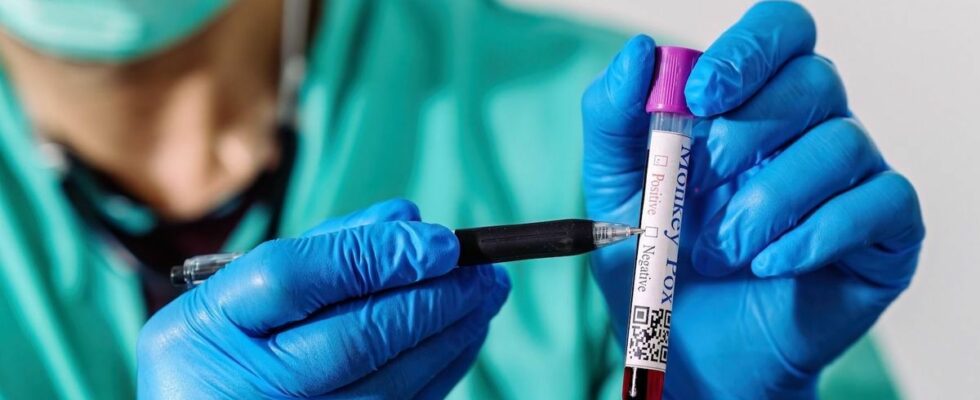Published on
updated on
Reading 3 min.
in collaboration with
Dr Gérald Kierzek (Medical Director of Doctissimo)
After a maximum alert triggered by the WHO and the appearance of a first case in Europe, the mpox virus is scary. But should we be worried in our daily lives? Dr. Gérald Kierzek, emergency physician and medical director of Doctissimo, offers us an update on this emerging virus.
What is mpox?
It is a viral disease, formerly known as monkeypox, which spreads from animal to human, but also through close contact with an infected person or skin lesions. However, a new strain of the virus detected in September 2023 seems to be spreading faster and stronger than before, particularly in Africa. There have been 18,700 suspected or confirmed cases since the beginning of the year, including 1,200 in the last week. A case was also detected in Sweden last Thursday and several cases are likely in Europe in the coming days or weeks according to the World Health Organization (WHO).
MPOX is transmitted mainly by direct contact with lesions, but also by contaminated objects or saliva droplets, in close contact with an infected person.
While previous variants mainly affected homosexual and bisexual men, this clade 1b variant is spread during heterosexual or non-sexual intercourse. Mothers and children, for example, have been affected.
Is MPOX an STI?
Although often associated with sexual intercourse, it is not classified as a sexually transmitted infectionbecause it has not yet been established whether transmission through semen or other biological fluids is possible.
What are the symptoms?
Symptoms usually include fever, swollen glands and pain, and then a rash all over the body. But these symptoms vary from person to person.
Can you be asymptomatic?
Yes, some people may not have visible symptoms. Also remember that the incubation period of the virus can range from 5 to 21 days, “It is therefore important that patients remain isolated for the entire duration of the illness (until the last scabs have disappeared, usually three weeks)”warns the Ministry of Health.
Do condoms protect against MPOX?
Although it offers some protection, it does not guarantee complete protection against MPOX.
Is vaccination effective?
Yes, vaccination is the most effective method to prevent infection. Unfortunately, few doses are available in the most affected African countries.
Can vaccinated people get MPOX?
Yes, vaccination reduces the risk, but does not eliminate it completely.
There is no specific treatment. Symptom management is recommended, including pain medication, until symptoms resolve.
Should we be worried about an epidemic in France?
Health authorities are monitoring the situation, but the risk of spread outside certain areas is currently considered low.
At the moment, the only cause for concern is the appearance of symptoms such as rash, fever or muscle aches after traveling to areas where mpox is endemic. In this case, it is crucial to consult a health professional if you have these symptoms.
To minimize the risk of contamination, it is recommended to follow these precautions:
- Avoid close contact with people with symptoms of COPD or who have recently been in affected areas;
- Have good hygiene when washing hands frequently and using disinfectants;
- Wear a mask when in contact with potentially infected people;
- Avoid touching potentially contaminated surfaces or objects;
- Stay informed of recommendations from local health authorities and WHO regarding MPOX and preventive measures, particularly regarding vaccination.

